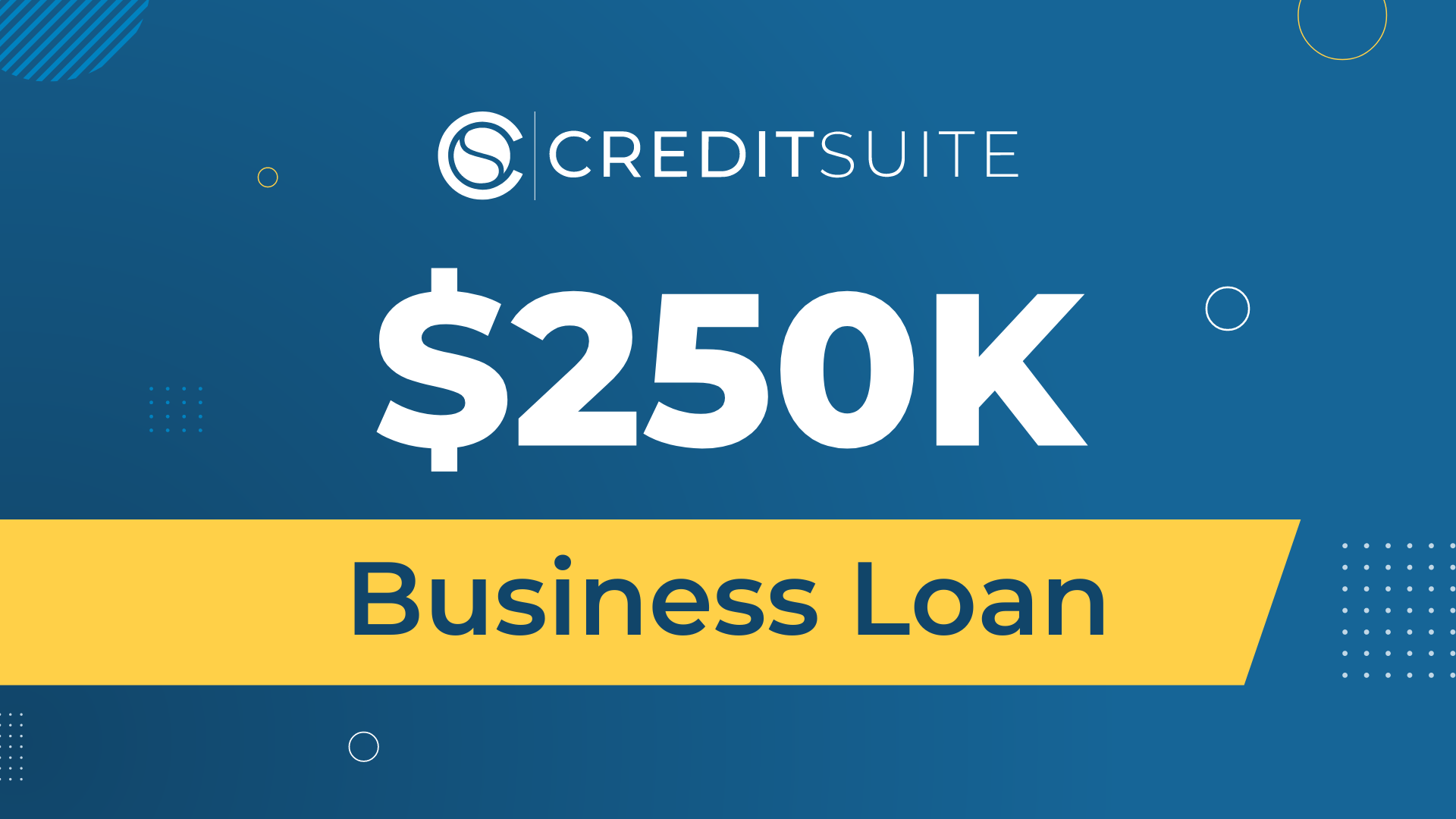Please note: Lending options, rates, and qualifications change regularly. The information in this post is based off of requirements as of original posting date of July 2, 2024.
Reaching the goal of securing a $250,000 business loan signifies a significant achievement, and our guide is here to provide assistance every step of the way. Selecting the appropriate loan is crucial as each financing avenue comes with its own distinct criteria.
As with all types of lending, you need to reach different requirements with the proper Fundability in order to fully qualify. This article is giving you the information you need to understand the starting points for some of the most common types of funding available. Additionally, it’s important to keep maximum approval amounts in mind when searching for funding. You will find each one we touch on in this article have a wide range of maximum limits. But with the correct combination, you have the possibility to reach those funding needs and wants much easier.
The table below has the requirements for each major business loan type.
The Best $250k Business Loans
| Loan Type | Requirements | Approval Difficulty |
| Bank Loan (Term Loan) | Good credit, 2 years in business, business cash flow | Hard |
| Business Line of Credit | Good credit, 2 years in business, business cash flow | Hard |
| SBA Loan | Good credit, 2 years in business, business cash flow | Hard |
| Credit Line Hybrid | Good credit | Easy (No Doc) |
| Business Credit Card | Good credit | Easy |
| Equipment Financing | Good credit | Easy |
| Merchant Cash Advance | Credit card sales, bad credit | Easy |
| Cash Flow Financing | Business cash flow, fair credit | Easy |
How to Qualify for a $250,000 Business Loan
Obtaining approval for a business loan depends on six key factors. Traditional bank loans demand competence in each of these areas, while alternative financing routes may offer greater flexibility. These factors include:
- Personal Credit: Numerous niche lenders focusing on small businesses typically anticipate entrepreneurs to maintain strong personal credit scores.
- Business Credit: Establishing robust business credit ratings and comprehensive profiles can streamline the procedure for qualifying for a loan.
- Business Income: Most methods for securing funds in the business sector typically require evidence of revenue as an initial necessity.
- Collateral: Securing authorization for asset-backed borrowings, like vehicle financing, commercial property mortgages, and equipment loans, usually entails more streamlined procedures.
- Time in Business: Many corporate lending institutions generally prefer dealing with businesses that possess a track record of two to three years.
- Industry: Despite their stable economic base, specific industries could face challenges in obtaining authorization.

The Best $250k Business Loan Types
Bank Loans (Term Loans)
Commercial lending by standard banks is frequently termed as term lending. It involves steady repayments throughout an established “term,” often between 3 to 5 years. Such financing characteristically has consistent interest rates.
Requirements: For eligibility for bank term financing, business owners usually need a robust personal credit history (FICO Scores above 680), a company operational for at least two years, and annual incomes of no less than $100,000.
Business Line of Credit
Gaining acceptance for business credit lines, similar to term loans, is frequently offered by conventional banks. Although the interest rates are attractive, the criteria for qualification can be stringent.
Once approved, you obtain a loan functioning similarly to a credit card, with the flexibility for multiple uses. A set credit ceiling, say, $250,000, is assigned, and incremental repayments are necessary to settle the amount owed.
Requirements: To be eligible for business credit lines, small enterprise owners typically need a strong personal credit profile (FICO Scores above 680), at least two years of business activity, and annual earnings exceeding $100,000.
SBA Loans

Combining the support of traditional banks with government guarantees, SBA Loans offer beneficial terms and lower interest rates. However, maneuvering through the approval process of these loans can present obstacles.
A variety of SBA loan types exist, with the 7a and 504 loans becoming the preferred selections.
Requirements: For SBA loan eligibility, businesses often must have a year of operations, strong personal credit, and specific revenue figures.
Credit Line Hybrid
Credit Suite offers an innovative solution known as the Credit Line Hybrid, guaranteeing swift authorization for business funds ranging from $10,000 to $150,000, without requiring extensive documentation.
Requirements: The Credit Line Hybrid requires a decent personal credit rating (FICO 680 or higher). It’s accessible to startups without a past, collateral, or significant cash flow, making the application more straightforward.
Business Credit Cards
Business credit cards offer an alternative path for financial support, featuring straightforward qualification requirements. Similar in operation to personal credit cards, they provide a line of credit that requires monthly repayment.
The key difference between commercial and personal credit cards is the generally higher credit ceilings associated with the former.
Furthermore, establishing a credit history for the business permits entrepreneurs to acquire these cards without being entirely dependent on their individual credit backgrounds.
Requirements: Usually, business credit cards demand a strong personal credit history, and sometimes, they might also assess the firm’s income.
Equipment Financing

Securing equipment financing provides a simpler route for qualification compared to alternative methods.
This involves arranging either a loan or lease with regular monthly payments to obtain machinery or heavy equipment. If you need financing, especially a $250,000 loan for equipment purchase, this avenue warrants close examination.
Requirements: When considering equipment financing, it’s crucial to have a solid personal credit history and a sincere readiness to fully engage in the process.
Merchant Cash Advance
Operating via a business’s “merchant processing” system, merchant cash advances oversee credit card sales. In this setup, the creditworthiness of the business owner and supplementary factors hold less significance.
Upon receipt of funds, repayment occurs automatically by deducting a fraction of sales, eliminating the necessity for fixed payment arrangements.
Due to their elevated financing costs, these advances should be viewed as a final recourse when alternative financing avenues are accessible to the business owner.
Requirements: An enduring monthly income from credit card transactions, ideally surpassing $10,000, is greatly desired. In this situation, imperfect credit is deemed permissible.
Cash Flow Financing
Recognizing the limitations tied to merchant cash advances, Credit Suite unveils a beneficial alternative called Cash Flow Financing. Similar to merchant cash advances, the primary requirement for this financing avenue revolves around the business’s cash flow.
However, Cash Flow Financing sets itself apart from merchant cash advances by not confining eligibility solely to companies reliant on credit card transactions for revenue. Instead, it evaluates all streams of cash flow.
Requirements: Strong cash flow, at least $10,000 per month. Below average credit scores accepted.
Looking for another loan amount? Consider these articles: $900k Business Loan Options, $800k Business Loan Options, $700k Business Loan Options, $600k Business Loan Options, $500k Business Loan Options, $400k Business Loan Options, $300k Business Loan Options, $200k Business Loan Options, $150k Business Loan Options, and $100k Business Loan Options.

